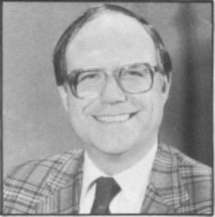 |
Home | Search | Browse | About IPO | Staff | Links |
 |
Home | Search | Browse | About IPO | Staff | Links |
|
Politics No supplement welfare checks  By CHARLES N. WHEElER III "Twas a few days before Christmas, and all through the state, ALTHOUGH Gov. James R. Thompson's veto of a modest cost-of-living adjustment for almost 900,000 welfare recipients was not unexpected, it was a sorry way to close out 1985. In slicing the $6.4 million outlay from a $287 million spending grab bag, the governor dismissed the issue in a single paragraph of a three-page veto message: "A major program change such as this must be considered during the regular fiscal year 1987 budget process." At issue was whether monthly welfare checks would be increased to keep pace with inflation, as measured by their ratio to the amount the state Public Aid Department says a poor family requires each month for its basic needs. After a cost-of-living adjustment at the start of last year, grant levels stood at 52 percent of the standard of need. Without another adjustment this year, however, the monthly checks slipped to only 50 percent of the new need figure which became effective in January. The veto was particularly rankling to the Illinois Campaign for Family Stability, a broad-based coalition of civic, religious, labor and human service groups that worked hard to keep the issue of adequate grant levels in the public spotlight. Going into the fall session, the coalition's leaders believed they had the governor's commitment to support the increase if the legislature provided the funds. After the coalition's tireless lobbying lined up enough votes to pass the increase as part of an omnibus supplemental appropriation, though, word filtered down that the administration was trying to keep the welfare funds out of the catchall spending measure. But in the closing hours of the fall legislative session, when the budget Christmas Tree was being festooned with projects dear to members' hearts, Sen. Kenneth Hall led a conference committee fight to include the welfare star among the ornaments. Hall, an East St. Louis Democrat who heads one of the Senate appropriations committees, won the welfare dollars in a horse trade for baubles coveted by the governor and his allies, including a Lake County marina and a southern Illinois fairgrounds. Both these projects were unscathed by Thompson's veto pen, of course. Apologists for the governor defended his decision by citing the future year costs of the welfare adjustment. The $6.4 million appropriation was to have covered only the last three months of this fiscal year; to maintain grants at the same level for all of fiscal 1987 — when Thompson is committed to massive new infusions of state dollars into public schools — would cost more than $25 million. Meanwhile, initial revenue forecasts for the fiscal year starting July 1 are not encouraging; in fact, belt-tightening measures already are in place to keep the spending base down this year to help accommodate increased education outlays next year. In short, Thompson's defenders say, it's a choice between educating our children or providing a better living for welfare recipients. But in a state that's among the nation's wealthiest, in terms of personal income, might it not be possible to have better schools and more humane benefit levels as well? Obviously, the answer is yes if revenues are increased, not through the overworked sales tax, but in the relatively painless income tax. Conventional political wisdom would dictate that's a topic best left untouched by those whose living depends on the electorate's favor. Still at least one gubernatorial hopeful, James D. Nowlan, was brave enough to broach the subject before his quixotic quest foundered on the election code's unreasonably high signature requirements for independents' nominating petitions. In a thought-provoking position paper on taxes and education, Nowlan proposed increasing the individual income tax rate to 3.15 percent from 2.5 percent, a 26 percent hike, and doubling the individual deduction to $2,000 from $1,000. The net effect, he said would be to reduce taxes for lower-income families and to increase them for middle- and high-income families, producing about $400 million a year in added revenues. Nowlan urged the extra dollars be directed into the schools, especially early childhood programs for high-risk youngsters and their parents. Earmarking a small portion of the new revenue to cost-of-living adjustments in welfare grant levels seems logical extension to the Nowlan plan, the observation that children learn better when they're well-fed, properly clothed and adequately housed is certainly not startling. Nor would the income tax hike be particularly onerous; according to study of the state's tax climate by the Taxpayers' Federation of Illinois, the state ranked 29th in state and local tax burden per $1,000 of personal income in 1984, the last year for which comparable data were available. Though several permanent tax increases have been enacted since then, most notably the additional penny sales tax, the non-partisan fiscal watchdog group concluded that "available data suggests the overall state and local tax burden in Illinois remains moderate." Wishful thinking? Perhaps. Yet our leaders are courageous enough and our people compassionate enough — those empty stockings still could be filled. In the end, remember, the spirit of sharing infected even the Grinch. 2/February 1986/'Illinois Issues |
|
|